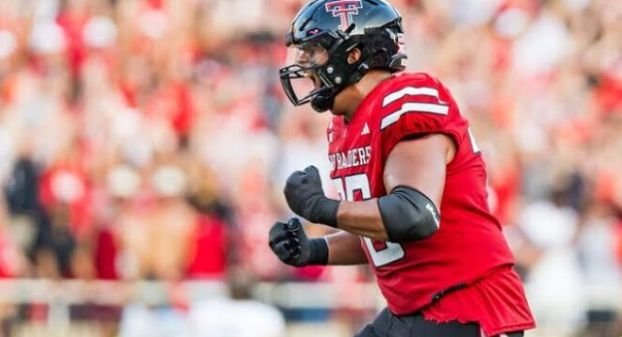Caleb Douglas didn’t mince words in his statement. “This is not a decision I made lightly,” he said. “I’ve spent weeks reflecting, and after much consideration, I’ve decided that I can no longer continue to play for Texas Tech under the current circumstances.”

Douglas cited a combination of personal, professional, and institutional reasons for his departure. While he refrained from going into too much detail, he hinted at issues ranging from lack of trust within the coaching structure to a feeling of being undervalued despite his contributions on the field.
One of the key themes in Douglas’s explanation was a breakdown in communication with the coaching staff. Sources close to the team suggest that tensions have been simmering behind the scenes for months, with disagreements over game strategy, player development, and even off-field expectations.

“Caleb felt like his voice wasn’t being heard,” a source familiar with the situation revealed. “There were several meetings where he expressed concern, but it seemed like his feedback went unnoticed. That’s when the frustration really started to build.”
Perhaps the most striking part of Douglas’s statement was his emphasis on mental health and overall player wellbeing. “There’s more to football than just the game,” he said. “When the environment becomes toxic or draining, it’s okay to step away. My peace of mind, mental clarity, and personal growth matter more than anything else.”

In an era where more athletes are stepping forward to discuss the psychological toll of sports, Douglas’s openness has been widely praised. His words reflect a growing shift in the college athletics landscape one where players are demanding to be seen not just as athletes, but as people.
Texas Tech officials have yet to release a detailed response, though head coach Joey McGuire issued a brief statement acknowledging Douglas’s decision. “We respect Caleb’s choice and thank him for his time and efforts with the Red Raiders. We wish him the best in his future endeavors.”
Despite the professionalism of the statement, there is no doubt that the departure of a player of Douglas’s caliber is a significant blow to the program. Known for his speed, reliable hands, and sharp football IQ, he was seen as a key part of Texas Tech’s offensive strategy moving forward.

As for what comes next, Douglas remains tight-lipped. Rumors are already swirling about potential transfer destinations, with several high-profile programs reportedly showing interest. For now, though, he appears focused on regaining balance in his life and preparing for the next chapter on his own terms.
